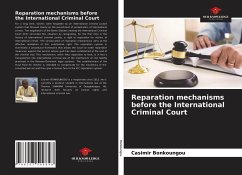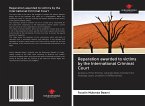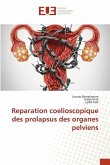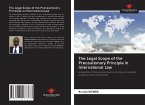For a long time, victims were forgotten by an international criminal justice system that focused mainly on the punishment of perpetrators of international crimes. The negotiators of the Rome Statute creating the International Criminal Court (ICC) corrected this situation by recognizing, for the first time in the history of international criminal justice, a right to reparation for victims of international crimes. The consecration of reparation mechanisms aims at the effective realization of this substantive right. The reparation system is essentially a procedural framework that allows the Court to order reparation measures against the person whose guilt has been established at the end of the criminal trial. This mechanism, which links reparation to fault, is in fact a transposition into international criminal law of the mechanism of civil liability practised in the Romano-Germanic legal systems. The establishment of the Trust Fund for Victims is intended to compensate for the insolvency of the convicted person and thus give a human face to the ICC reparation system.
Hinweis: Dieser Artikel kann nur an eine deutsche Lieferadresse ausgeliefert werden.
Hinweis: Dieser Artikel kann nur an eine deutsche Lieferadresse ausgeliefert werden.








